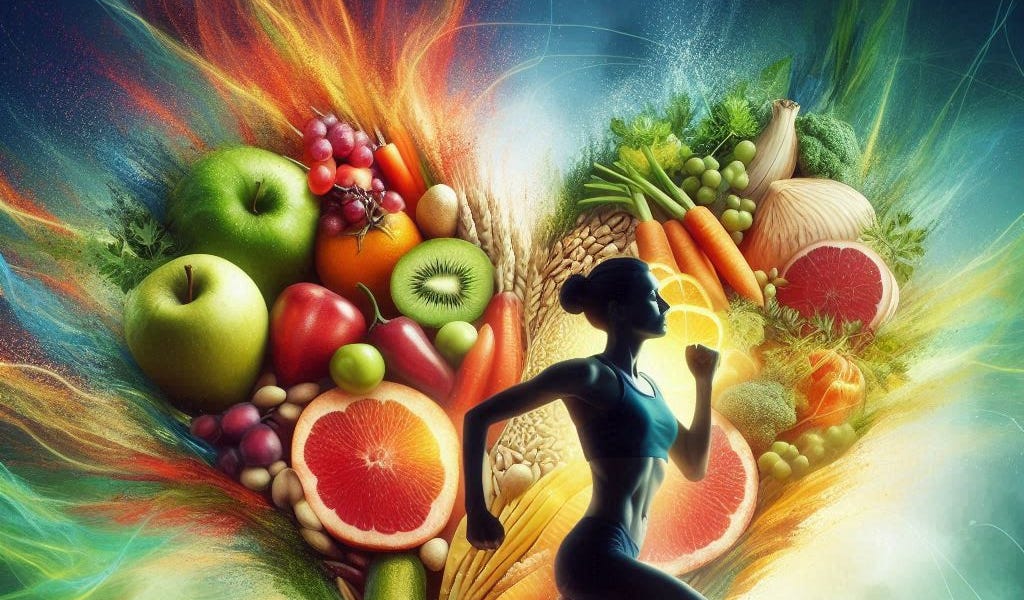

When it comes to athletic performance, nutrition plays a crucial role. Whether you’re an amateur enthusiast or a seasoned professional, what you eat directly impacts your energy levels, recovery, and overall success in your chosen sport. Understanding the importance of macronutrients, micronutrients, and meal planning can make a significant difference in your athletic journey.
Macronutrients—carbohydrates, proteins, and fats—are essential for providing the energy and raw materials your body needs to perform and recover.
Carbohydrates are your body’s primary source of energy. When you engage in physical activity, your muscles use glycogen, which is stored in your muscles and liver, derived from carbs. Consuming sufficient carbohydrates before, during, and after exercise ensures that your glycogen stores are replenished, allowing you to maintain peak performance.
-
Good sources of carbohydrates include whole grains, fruits, vegetables, and legumes. Aim to consume complex carbs, which provide a steady release of energy, rather than simple sugars that can lead to energy crashes.
Proteins are vital for muscle repair and growth. After a workout, your muscles need protein to recover and rebuild. This process is crucial for athletes, as it helps improve strength and endurance over time.
-
Good sources of protein include lean meats, fish, eggs, dairy products, and plant-based options like beans, lentils, and tofu. Ensure you’re consuming enough protein throughout the day, especially after workouts, to support muscle recovery.
Fats are another important energy source, particularly for longer, low-intensity activities. Healthy fats also support cell function and hormone production, both of which are crucial for athletic performance.
-
Good sources of fats include avocados, nuts, seeds, olive oil, and fatty fish like salmon. Focus on unsaturated fats while limiting intake of saturated and trans fats, which can have negative health effects.
While macronutrients are essential for energy and muscle function, micronutrients—vitamins and minerals—play a critical role in overall health and performance.
Vitamins like A, C, D, and E are antioxidants that help protect your cells from damage caused by free radicals, which are produced during intense physical activity. B vitamins are essential for energy production, and vitamin D is crucial for bone health, which is particularly critical for athletes.
-
Good sources of vitamins include a variety of fruits, vegetables, dairy products, and fortified foods. Consider a balanced diet rich in colorful vegetables and fruits to ensure you’re getting a broad spectrum of vitamins.
Minerals such as calcium, iron, magnesium, and potassium are critical for muscle function, bone health, and hydration. Calcium is essential for bone strength, iron helps transport oxygen to your muscles, magnesium supports muscle and nerve function, and potassium helps regulate fluid balance.
-
Good sources of minerals include dairy products for calcium, red meat and leafy greens for iron, nuts, and seeds for magnesium, and bananas and potatoes for potassium.
To optimize your performance, it’s not just what you eat, but when you eat that matters. Meal planning involves strategically timing your intake of macronutrients and micronutrients to fuel your body for exercise and recovery.
Pre-Workout Nutrition should focus on carbohydrates for energy and a small amount of protein for muscle support. Aim to eat 1–3 hours before exercising to allow for digestion.
During Workout Nutrition is important for long-duration or high-intensity sessions. Consuming quick-digesting carbohydrates like sports drinks or gels can help maintain energy levels.
Post-Workout Nutrition should focus on protein and carbohydrates to kickstart the recovery process. Eating within 30 minutes of finishing your workout is ideal for replenishing glycogen stores and repairing muscles.
Daily Meal Plan for Athletes
-
Breakfast: Oatmeal with mixed berries and a handful of nuts.
-
Lunch: Grilled salmon with sweet potatoes and a side salad.
-
Snack: Greek yogurt with honey and almonds.
-
Dinner: Lean beef stir-fry with brown rice and vegetables.
-
Before Bed: Cottage cheese with sliced apple.
Proper nutrition is the cornerstone of athletic performance. By paying attention to what you eat, you can maximize your potential and achieve your athletic goals. Remember, consistency is key, and with the right approach, you can fuel your body for success.







